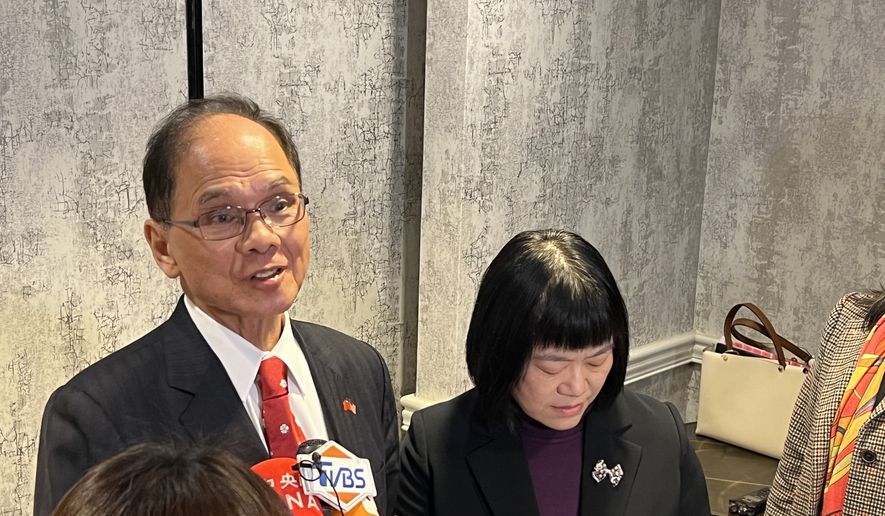A top Taiwanese legislator drew a sharp contrast Wednesday between religious freedom on the island democracy compared to the record of the Communist mainland its repression of Uyghur Muslims, Christians and other minority religions.
You Si-kun, president of Taiwan’s legislative Yuan, noted for an audience at the International Religious Freedom Summit in Washington on Wednesday that the Pew Research Center in a 2014 survey ranked Taiwan second among 232 nations and areas on its “Religious Diversity Index.”
“As its democratic system has developed, Taiwan has proactively protected religious freedom and encouraged religion’s healthy development,” said Mr. You, a member of the ruling Democratic People’s Party and a strong advocate in the past for Taiwanese independence.
In China, by contrast, “there is a comprehensive, systematic repression of religion,” Mr. You said, calling the actions an “all-out assault on religion” by the Chinese Communist Party. He said the Beijing regime has worked assiduously to suppress public symbols of faith and challenge the independence of various faiths from government control.
“In 2014, 1,200 crosses were forcibly taken down in Zhejiang Province,” he said Wednesday. “In 2018, over 20 million Christians faced repression in China. In 2020, [President] Xi Jinping announced the ’Sinicization of Christianity’ in the nation’s latest five-year plan.”
Mr. You said that in a four-month period in 2020, “crosses were ripped down off of 250 churches in Anhui province alone. Countless people’s Bibles were confiscated, while the sayings of Xi Jinping were made to replace the Ten Commandments” in church displays.
The Taiwanese parliament leader noted the oppression of Tibetans who have been “arrested and imprisoned for honoring the Dalai Lama,” and the systemic attacks on Uyghurs and other Muslims.
“The Chinese Communist Party’s attempts to extinguish the mother tongues, cultures, and faiths of different groups cannot be enumerated,” he said.
In his remarks, Mr. You emphasized what he said was Taiwan’s democratic pluralism and openness to religious practice.
“Freedom of religion is the basis of human rights and is at the core of democratic values,” he said. “We strongly believe that the people of China should breathe free air, and we ask that friends around the world take a collective stand in democratic development and religious freedom in China.”
Speaking with reporters following the summit, Mr. You said he would not meet with House Speaker Kevin McCarthy, California Republican, or other U.S. officials on this trip, citing a crowded schedule and a need to return to Taipei for the new legislative session there. Following in the footsteps of Democratic predecessor Nancy Pelosi, Mr. McCarthy has suggested he hopes to travel to Taiwan sometime this year.
China, which considers Taiwan part of its sovereign territory, reacted furiously to Mrs. Pelosi’s August 2022 visit, staging an unprecedented series of naval and aerial military maneuvers around the island in the wake of her trip and accusing Washington of promoting pro-independence forces on the island.
• Mark A. Kellner can be reached at mkellner@washingtontimes.com.




Please read our comment policy before commenting.